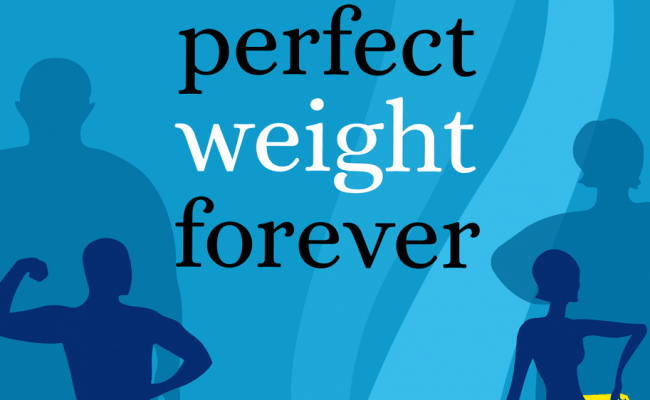
For decades, the main approach for weight loss was with a self depriving diet and rigorous exercise plan. The focus has been primarily on cutting calorie intake to encourage the body to increase fat loss.
While this can be an important part for weight loss, health experts know recognize there may be more to weight loss than just cutting calories and/or bumping up your exercise.
With the continued rise of obesity, more and more people are trying to lose weight. According to a 2012 ABC News article (1), the weight loss industry is over a 20-billion-dollar industry.
With so many weight loss options, it can seem overwhelming to know which “plan” or “diet” really works best for weight loss.
Data from research studies looking at people who have successfully lost weight and kept it off suggests there isn’t one special way for successful weight loss.
Various programs and healthy eating patterns can sustain long term weight loss. What may be a larger impact of weight loss success and eating habits is sticking with your healthy changes long term.
Changing your attitude towards food into more positive thoughts instead of having a negative mind set can increase the likelihood of sticking with your weight loss journey.
Instead of focusing on negative thoughts about your body or food, research has shown switching your attitude can help support you towards success instead of failure.
Changing your attitude towards food doesn’t have to complicated, but it will take some time. Our thought patterns and attitudes have been built up in our minds over years.
Making some small shifts in your thinking can help change your attitude. As with any change, give yourself time and grace to implement these changes.
See also: Hypnosis for weight loss does it really work
Self deprivation to self control
The words, “I’m going on a diet” can often be equated to going on deprivation. A common attitude towards food and going on a diet is depriving yourself of certain foods that you can’t eat.
For example, the attitude for self deprivation can be: I can NEVER eat desserts, NEVER go out to eat and you HAVE TO eat boring, unsatisfying meals.
While following a depriving diet for some people may help for weight loss, for others it may be a set up for failure.
Focusing on foods you can now NEVER eat can increase how much you think about these foods and may lead up to a binge episode followed by guilt and negative thoughts.
Feelings of guilt may help promote behavior changes, but they can also lead to helplessness and feeling out of control (2).
Instead of self deprivation, shift your attitude to self control.
For example, instead of NEVER being able to eat desserts, self control attitude would allow a small dessert occasionally as part of a healthy diet (3).
Nourish your body, not just count calories
The body needs nutrients from food for survival and to thrive. Instead of seeing eating as an outlet when you are stressed, sad, etc., see eating as a way of fueling your body with nutrients.
Food should be nourishing to your body, not pendulum of strict restriction followed by over indulgence.
Shifting your attitude to seeing food as nourishment for your body instead of something you are fighting against for the number on the scale can be a positive shift.
Instead of focusing on eating only a certain calorie amount, focus on eating foods that provide many nutrients your body needs such as: vitamins, minerals, heart healthy fats, protein, antioxidants and fiber.
Instead of seeing food as a number game between the scale and a daily calorie allotment focus on eating foods that provide nourishment to your body.
This concept ties in with self deprivation. Instead of focusing on how little calories you should eat, focus on which nutrients your body needs and deserves to thrive on and be healthy.
Aim to get more of these nutrients in your diet instead of focusing on how little you should be eating.
Don’t mentally beat yourself up
According to US News and World Report (4), research from Syracuse University suggests how you see yourself and your core identity can predict your actions.
For example, women in a study who were dissatisfied with their bodies were more likely to avoid exercise.
Some research has also shown simply thinking you are overweight may increase risk of weight gain in the future.
Instead of seeing yourself as unhealthy or in other negative ways, shift your attitude towards seeing yourself making healthy decisions for your health now and in the future.
Understand your emotional eating triggers
Practicing mindful eating means you are letting your body guide your food intake. In todays fast paced, multitasking environment, it can be easy to dull your sense of your body’s signaling.
We are used to eating until our plate is empty, eating when we see food or eating as a coping mechanism when we are sad, mad, bored, etc.
Understanding why you eat can help your attitude towards food. Are you turning to food as a stress reliever or when you feel out of control? Are you turning to food when you feel bored or lonely? Doing a food journal that tracks how you feel when you are eating can help clarify some attitudes toward food.
Instead of using food as an emotional trigger, use food to fuel and nourish your body. Enjoy your food; don’t just inhale your food until your plate is clear. Listen to your body when it is full, not stuffed, and when it is hungry.
What do you do when you find an emotional trigger to eating?
Develop an attitude and strategy of turning to something healthy when you feel this emotion such as: taking a walk, exercising, knitting, or whatever else is stress relieving to you.
Breaking the habit of turning to food when coping with an emotion is a critical step for developing a healthy relationship with food.
Set yourself up for success in your environment
If you are doing a self depriving diet, it can be challenging to avoid all sweets if they are all around your house or office.
Shifting your environment to promote healthy eating as the first choice can cut out some of the mental battles of will power.
For example, don’t keep junk food in the house just because your kids or significant other eats them. Put healthy food choices in the front of the refrigerator and cupboards.
Set yourself up for a healthy attitude towards food by taking away some of the mental “battling” you may do with yourself over avoiding certain foods when they are constantly surrounding you.










